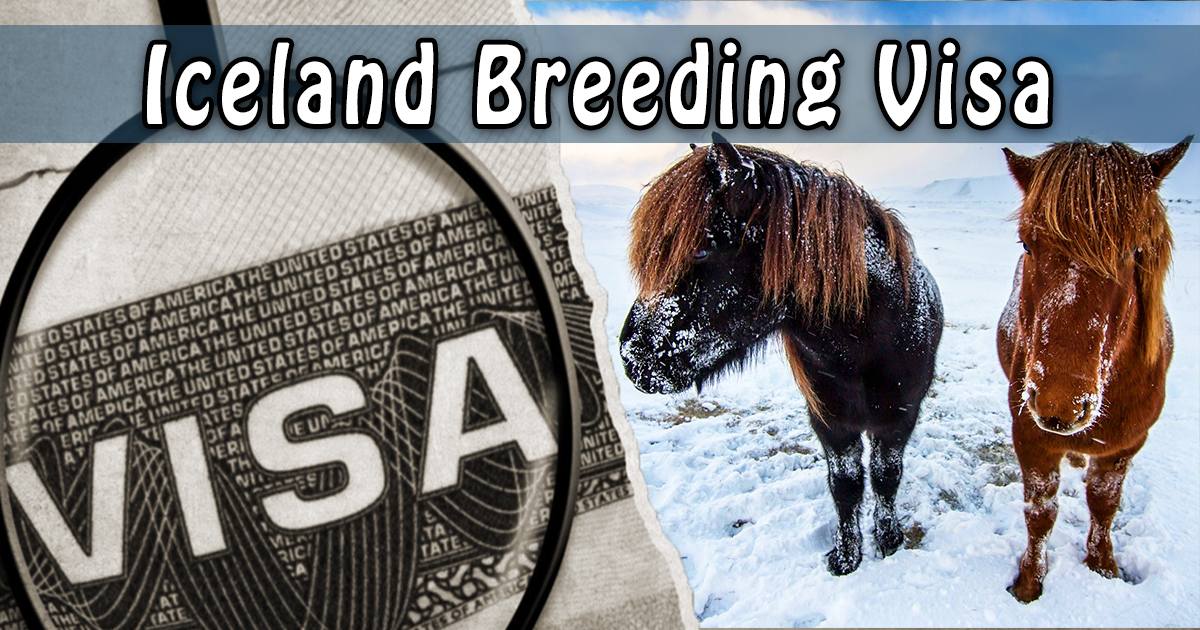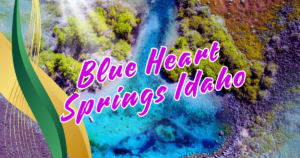Introduction: Why Iceland is the Ideal Destination for Breeders
Iceland is renowned for its pristine landscapes, rich history, and a growing agricultural sector that attracts breeders from around the world. Whether you are breeding livestock, horses, or specific types of animals, the opportunity to work in Iceland presents numerous advantages. In this guide, we will explore the ins and outs of obtaining an Iceland Breeding Visa, its eligibility criteria, and how you can maximize your chances of success.
What is an Iceland Breeding Visa?
An Iceland Breeding Visa is a specialized permit allowing foreign nationals to enter and reside in Iceland for the purpose of animal breeding. This visa caters to both individuals and businesses involved in agricultural and breeding activities, covering livestock, horses, and other animals. The visa is part of Iceland’s effort to encourage sustainable and high-quality animal husbandry within its borders.
The visa allows breeders to live and work in Iceland while contributing to the country’s agricultural development. It also facilitates the import and export of quality breeding stock, which is essential for maintaining Iceland’s high standards in breeding programs.
Who Needs an Iceland Breeding Visa?
Any foreign individual or business looking to engage in animal breeding within Iceland’s territory must apply for an Iceland Breeding Visa. This includes:
- Livestock breeders (e.g., cattle, sheep, and goats)
- Horse breeders
- Specialists involved in animal breeding programs
- Agricultural entrepreneurs looking to expand their breeding operations in Iceland
For nationals of the European Economic Area (EEA) or European Free Trade Association (EFTA), the process may be different, but individuals from outside these regions will need to secure the proper visa before they can begin their operations in Iceland.
Eligibility Criteria for an Iceland Breeding Visa
Before applying for an Iceland Breeding Visa, it is essential to ensure you meet the following eligibility requirements:
- Professional Qualifications: Applicants must demonstrate experience in animal breeding or a related agricultural field. A degree in animal science or a similar discipline is advantageous.
- Proof of Purpose: You will need to provide a detailed proposal of your breeding project in Iceland, including the types of animals you intend to breed and how your program will contribute to Iceland’s agriculture.
- Sufficient Financial Means: Applicants must show proof that they have the financial capability to support themselves during their stay. This includes funding for the breeding operation and personal expenses.
- Compliance with Iceland’s Animal Regulations: Your breeding activities must comply with Iceland’s strict regulations on animal welfare, hygiene, and environmental impact.
How to Apply for an Iceland Breeding Visa: Step-by-Step Guide
Applying for an Iceland Breeding Visa requires attention to detail. Here’s a breakdown of the application process:
- Prepare Documentation: Gather all necessary documents, including your passport, proof of professional qualifications, a detailed breeding project proposal, financial statements, and proof of accommodation.
- Submit Your Application: Applications for the Iceland Breeding Visa are submitted to the Directorate of Immigration. Visit the official Directorate of Immigration for detailed information and to access the application forms. Ensure that you have filled out the application form completely and accurately.
- Pay the Visa Fee: There is a non-refundable application fee that must be paid during submission. Fees may vary based on the length of your intended stay.
- Attend an Interview: Depending on your country of residence, you may be required to attend an interview at the Icelandic embassy or consulate in your region.
- Wait for Processing: Visa processing times can vary. Typically, it can take several weeks or even months depending on the complexity of your case.
- Receive Your Visa: If approved, you will receive your Iceland Breeding Visa, which allows you to enter and start your operations in the country.
Top Mistakes to Avoid When Applying for a Breeding Visa in Iceland
Applying for a breeding visa in Iceland can be challenging, but avoiding these common mistakes can improve your chances of success:
- Incomplete Documentation: Ensure that all required documents are properly submitted. Missing documents can cause delays or rejection.
- Insufficient Proof of Financial Means: Failing to show you have enough funds to support your operations and personal stay can lead to a visa denial.
- Unclear Breeding Project: A vague or incomplete project proposal will weaken your application. Make sure your breeding plan is detailed and outlines its contribution to Iceland’s agriculture.
- Overlooking Animal Regulations: Ensure that you fully understand and comply with Iceland’s animal welfare laws to avoid issues during your stay.
Benefits of Iceland Breeding Visas for Foreign Nationals
Securing a breeding visa in Iceland offers numerous benefits, such as:
- Access to High-Quality Breeding Programs: Iceland’s breeding programs, particularly for horses and livestock, are world-renowned.
- Low Environmental Impact: Breeding in Iceland allows you to work in an eco-friendly environment where sustainable practices are encouraged.
- Unique Opportunities for Export: Iceland’s strategic location makes it ideal for exporting quality breeding stock to other countries.
For foreign breeders looking to enhance their careers or expand their businesses, Iceland offers a wealth of opportunities.
Iceland’s Animal Breeding Regulations and Guidelines
Iceland has stringent regulations to ensure the welfare and health of animals bred within its territory. Breeders must adhere to the following guidelines:
- Animal Welfare Standards: Iceland enforces strict laws regarding the treatment and welfare of animals. All breeding operations must ensure the humane treatment of animals, including proper shelter, feeding, and healthcare.
- Importation Rules: If you plan to import breeding stock, you must comply with Iceland’s importation rules, including quarantine requirements and health certifications.
Failure to comply with these regulations can result in fines or the revocation of your breeding visa.
Cost and Processing Time for Iceland Breeding Visas
The cost of obtaining an Iceland Breeding Visa includes the application fee and other related expenses such as legal services or document translations. Typical visa fees range between 100 to 200 euros, but this can vary depending on the length of stay and the type of breeding operation.
Processing times can range from a few weeks to several months, depending on the complexity of your case and the volume of applications being processed. It’s advisable to apply as early as possible to account for any delays.
Real Success Stories: Breeders Who Found Success in Iceland
Several breeders have found success in Iceland, leveraging its unique agricultural resources and supportive government policies. One notable example is the Icelandic horse breeding community, which has attracted breeders from all over the world due to Iceland’s strict breeding standards and the purity of its horse lineage.
These success stories underscore Iceland’s potential as a breeding hub for both small-scale and large-scale agricultural operations.
Iceland’s Breeding Visa and Sustainable Agriculture
One of the key benefits of obtaining an Iceland Breeding Visa is the chance to participate in the country’s strong commitment to sustainable agriculture. Iceland has implemented several eco-friendly practices across its farming sectors, ensuring that the environment remains protected while promoting agricultural growth.
For breeders, this means adhering to high environmental standards, such as minimizing waste, promoting biodiversity, and reducing carbon footprints. Iceland’s agricultural policies are designed to support sustainable farming practices, making it an ideal destination for breeders who wish to align their operations with environmentally conscious goals. In addition, breeders benefit from Iceland’s access to clean water and renewable energy sources, further enhancing the sustainability of breeding operations in the country.
How the Icelandic Government Supports Breeders
The Icelandic government provides a range of supports and incentives for foreign breeders, helping them establish and grow their operations within the country. This includes access to funding opportunities, tax incentives, and specialized programs that promote agricultural development.
For breeders, this means there are potential grants and loans available for starting or expanding breeding projects. Additionally, breeders may qualify for agricultural subsidies, which can reduce the overall costs of breeding operations. The government also facilitates networking opportunities with local farmers and breeders, allowing for a smoother integration into the Icelandic agricultural community.
With this supportive framework in place, breeders entering Iceland can look forward to an environment that encourages innovation, growth, and sustainability in the breeding industry.
FAQs About Iceland Breeding Visas
- What animals can I breed with an Iceland Breeding Visa?
You can breed livestock such as sheep, cattle, and goats, as well as horses and other approved animals. - How long is the breeding visa valid for?
The visa is typically valid for up to one year, with the possibility of extension depending on the project. - Can I apply for permanent residency with a breeding visa?
A breeding visa does not automatically grant permanent residency, but it can be a stepping stone depending on your long-term plans in Iceland. - Do I need to speak Icelandic to apply for a breeding visa?
While it’s not mandatory, having some knowledge of Icelandic can be beneficial for communication and integration into the local agricultural community.
Conclusion: Iceland Awaits Your Breeding Expertise
Obtaining an Iceland Breeding Visa opens up a world of possibilities for animal breeders and agricultural entrepreneurs. With a clear understanding of the application process, eligibility criteria, and the benefits of working in Iceland, you are well on your way to making your mark in this beautiful and agriculturally rich country. Follow the steps carefully, avoid common mistakes, and enjoy the incredible opportunity to breed in one of the most sustainable and unique environments in the world.
Internal Link:
For more information on the application process and general visa inquiries, feel free to visit myreadmagazine.com.

Joseph Bush is a seasoned writer and researcher with over 7 years of experience covering a wide range of general topics, from lifestyle and technology to business and current events. He is dedicated to producing fact-checked, reader-friendly content that informs, engages, and empowers readers.
Throughout his career, Joseph has followed strict editorial guidelines, relied on reputable sources, and ensured every article meets the highest standards of accuracy and clarity. His expertise spans multiple fields, allowing him to explain complex topics in a way that’s easy to understand.
Passionate about continuous learning, Joseph stays updated on industry trends and best practices to deliver trustworthy, well-rounded insights. Readers can rely on his work for its credibility, depth, and real-world relevance.




